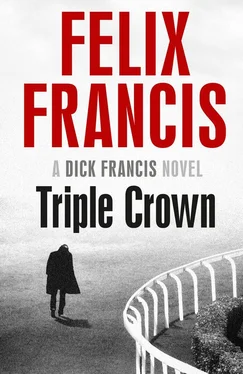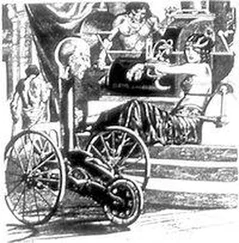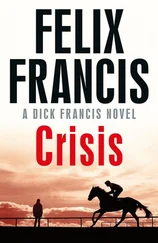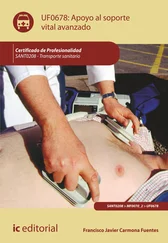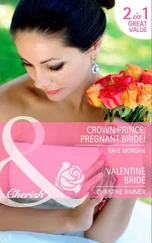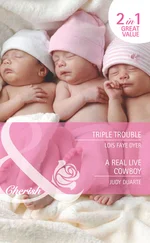One could almost cut the mounting tension as the 170,000 crowd joined together to sing ‘My Old Kentucky Home’ before the horses made their way down to the starting gate at the far end of the finish straight.
I had attended all the big races in England and some others around the world but there was something unique about the atmosphere here today at Churchill Downs. Hysteria would hardly be too strong a word to describe the excitement that had gripped those around me. Two people on my left were openly praying and a man to my right almost collapsed from hyperventilation.
There was a lull in proceedings as the horses went behind the starting gate to be loaded. It was as if everyone was taking a deep breath, but then the bell rang and the gates swung open. The race was on.
I am sure there was a track commentator somewhere calling the race but I had no chance of hearing him over the shouting and cheering from the crowd as the seventeen runners broke in an even line.
My vantage point, low down on the clubhouse turn, was not ideal but there was a huge-screen TV across the track giving me a perfect view.
As predicted, Fire Point was indeed swamped by the others in the early running as they all moved left towards the rail to take the shortest route, but he wasn’t impeded, passing the finish line for the first time in sixth place, well tucked up behind the leading group.
They came into view around the turn, sweeping past right in front of me at a terrific speed. Then they were off down the back straight where the field began to spread out as the breakneck pace caused some of the lesser animals to tire.
Fire Point was not among them.
The chestnut colt hit the front coming off the final turn and was never again headed, striding away from the chasing pack down the stretch, in the shadow of Churchill’s famed twin spires, to win by three lengths.
As the horse passed under the wire, his jockey, Jerry Fernando, stood tall in the stirrups, saluting the crowd with his whip hand held high, while those in the enclosures roared back their approval.
I noticed that the green and yellow silks finished fourth, collecting a hundred grand for the man in the striped shoes. Perhaps he’d be happy but, in this race, as in every other, winning was everything. Unlike in Formula One, there are no trophies in horseracing for coming second.
The jockeys pulled up their exhausted mounts right in front of me, each of them bar one with a hard-luck story of how they maybe didn’t get a clean run down the stretch, or were hampered on the rail in the turn, or the track was too dry, or a hundred other reasons why they didn’t win.
But for the connections of Fire Point, all their Christmases had come at once, as their champion racehorse was led to the Kentucky Derby winner’s circle to be draped across the withers with the traditional three-metre-long garland of red roses.
The race wasn’t called the ‘Run for the Roses’ for nothing.
Leg 2:
The Preakness Stakes
‘The Run for the Black-Eyed Susans’
A mile and three-sixteenths
Pimlico Race Course, Baltimore, Maryland
Two weeks after the Kentucky Derby
First run in 1873
‘Can you ride?’
‘To be sure, sir, I can,’ I answered in my best ex-headmasterly Cork accent.
‘You’re a bit tall.’
‘I blame my parents, sir,’ I said. ‘They fed me too well when I was a wee lad.’
My interviewer laughed. His name was Charlie Hern and he was the assistant to George Raworth, the Derby-winning trainer of Fire Point. I took him to be in his mid-thirties but he looked older, having already lost most of his hair.
‘You won’t have to ride the horses anyway,’ he said. ‘We have exercise riders for that. But it might be a bonus.’
He looked again at the slightly battered Green Card he was holding in the name of Patrick Sean Murphy complete with my picture and thumbprint. A Green Card’s official name was a United States Permanent Resident Card (USCIS Form I-551) and Tony Andretti had worked a miracle with the State Department to have mine delivered to his home the previous day.
It meant that I, as Patrick Sean Murphy, had the right to work legally in the United States.
Not only was the name on the card false but so was the date of issue, as it stated that I had been a US permanent resident for the past three years. Consequently I had spent some time the previous afternoon ‘aging’ the card by rubbing it under my shoe on a concrete floor.
The man shuffled once again through my equally fake testimonials while I stood in front of him without speaking, waiting.
‘Why did you leave Santa Anita,’ he asked, tapping one of the references.
‘Too hot, sir,’ I said. ‘Especially in the winter. I prefer me winters cold, same as at home, like.’
He was silent for a moment, then he shuffled the papers together.
‘OK, Patrick,’ Charlie said finally. ‘You’ll do. We’ve just had to let a groom go, so we’re shorthanded here at present. Can you start immediately?’
‘Indeed I can, sir,’ I said, smiling broadly at him. ‘And please call me Paddy.’
‘All right, Paddy,’ he said, handing me back the Green Card. ‘You’ll be paid minimum wage and half of it will be withheld for your room and board.’
I had looked up the minimum wage. I hadn’t been particularly impressed.
‘Where do I sleep?’ I asked.
‘Keith will show you. He’s the barn foreman so you do as he says.’
Keith had been standing next to me throughout the short interview.
We were in an office at the end of a training barn on the backside of Belmont Park Racetrack in New York. It was Wednesday morning, four days after the Kentucky Derby in Louisville, and two days after every racehorse trainer in the United States had received a strongly worded letter of warning from Immigration and Customs Enforcement concerning the employment of illegal immigrants.
‘And Paddy,’ said the assistant trainer as I turned to leave, ‘Mr Raworth expects absolute loyalty from his staff. You will do as you are told without question. You will not discuss your work with others, and you especially will not speak to the press about any of the horses. Do you understand?’
I turned back to face him.
‘Yes, sir,’ I said.
Keith and I went outside.
‘Where’s your stuff?’ Keith asked.
‘Me life’s all in here,’ I said, indicating the canvas holdall over my shoulder.
Keith led me round the side of Raworth’s barn to a two-storey building that was desperately in need of a coat of paint.
‘In here,’ he said, pushing open the door. ‘Do you want to share with a Mexican or a Puerto Rican?’
‘You keeps half me wages and then you makes me share a room?’
‘Take it or leave it. We have others after jobs, you know.’
‘The Mexican,’ I said, for no particular reason.
Keith showed me into a room that reminded me of a prison cell as depicted in a British TV sitcom of the 1970s. It was uniformly grey with a set of bunk beds taking up almost half the available floor space. In the corner, at the foot of the beds, were two wooden lockers stacked one upon the other, plus a hard, upright wooden chair. And overlaying everything was the smell of cheap disinfectant mixed with the characteristically pungent ammonic ‘horsey’ aroma.
There was no sign of my roommate.
‘Yours is the top,’ Keith said.
‘Bed or locker?’ I asked.
‘Both.’
‘And the jacks?’
He looked at me quizzically.
‘The jacks, man?’ I said. ‘The bleeding lavvies?’
‘If you mean the bathroom, that’s down the end of the corridor. You share it with four other rooms.’
Читать дальше
